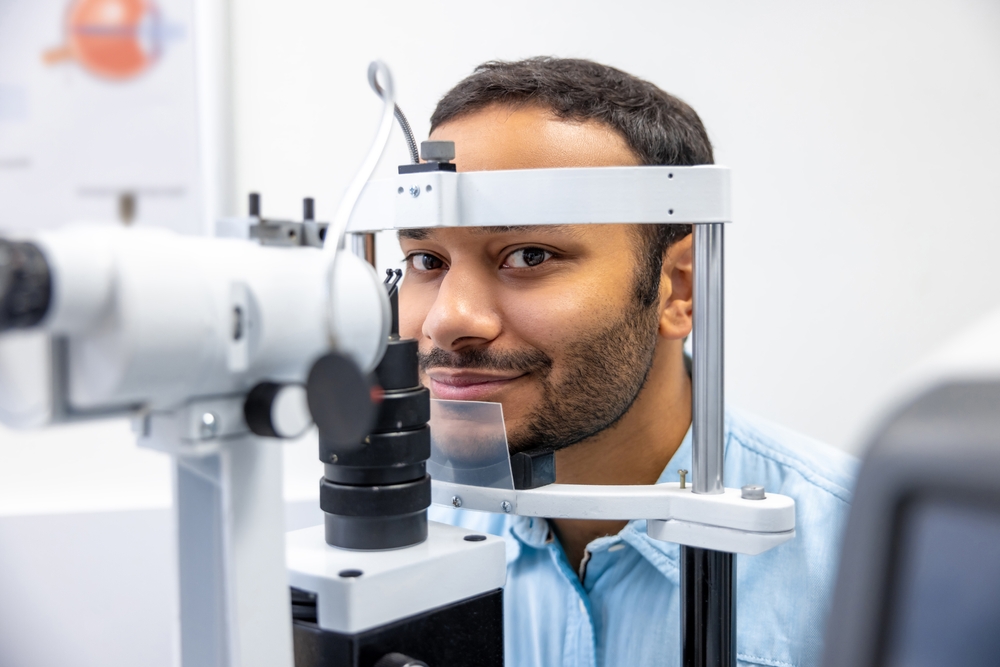7 of the Best Tips for Healthy Eyes this Winter
December 7, 2023
Are your eyes dry, itchy, or causing you discomfort? You aren't alone, especially during this time of year.
Your eyes can get irritated for all kinds of reasons. When most people think about the season that makes their eyes most irritated, they think of spring and allergy season.
But while you don't have to worry about most allergens in the winter, dry eyes are still something you have to worry about. In the cooler weather, your eyes are much more likely to get too dry and cause discomfort.
Dry eyes aren't just uncomfortable, either. They can lead to other issues with how healthy your eyes are. These include infection and even vision loss, making it essential to keep your eyes from getting too dry, no matter the season.
It can be challenging to do this during the winter, but it's not impossible. Keep reading to learn about 7 of the best tips for healthy eyes this winter!
1. Stay Hydrated
 It can feel like it's harder to remember to drink water when it's cold out. However, it's still important to stay hydrated during the winter.
It can feel like it's harder to remember to drink water when it's cold out. However, it's still important to stay hydrated during the winter.
It can seem more challenging to drink water when you're cold, but you still have to make it a priority. Your body needs hydration to stay healthy, so drinking plenty of water is good for you in many ways.
When it comes to your eyes, staying hydrated ensures they can continue producing healthy tears to ensure your eyes don't get too dry. Be sure to drink lots of water all winter long.
If it's too cold for a glass of water, try some hot herbal tea or other warm, hydrating beverages. Soup is an excellent way to stay warm while hydrating since most broths are at least partially water-based.
2. Limit Your Screen Time
As it gets cooler outdoors, you'll likely start spending more time indoors to stay warm. One of the things that most people do when they are indoors, especially in the winter, is watching TV.
The occasional Netflix binge is fine, but be sure to spend only a little bit of time looking at a screen. The blue light emitted from electronic screens can make your eyes feel dry.
It can also cause eye strain, headaches, and even fatigue. To keep your eyes healthy, protect them by limiting your screen time and wearing glasses that protect against blue light.
If you need to be looking at a screen for an extended time, try using the 20-20-20 rule. The 20-20-20 rule comes in handy if you need to use the computer, especially while you're working.
The rule is simple! Every 20 minutes, you take a 20-second break to look at an object 20 feet away.
Taking even a 20-second break from screens and digital devices gives your eyes a small break so you can refocus and avoid eye strain. It's also the perfect opportunity to blink and use eye drops or artificial tears if your eyes feel dry.
Learn More About Dry Eyes
Schedule a Free Dry Eye Consultation
3. Eat Right
Poor nutrition can affect your eye health. With all the sweet treats available during the winter months, it can be easy not to get the nutrients you need to keep your eyes healthy.
Limit sugar intake and eat a balanced, healthy diet of fresh fruits and vegetables. Some essential nutrients for keeping your eyes healthy include omega-3 fatty acids, vitamins A, C, E, zinc, and folate.
You can get these nutrients from vitamin supplements, but it's best to get them straight from the foods they come from. Make sure to eat a good amount of fish, seeds, walnuts, carrots, citrus fruits, avocados, almonds, dark leafy greens, and beans.
Many of these foods are perfect for making soup, which is hydrating and perfect for staying warm on a cold winter day! Why not keep your eyes hydrated and provide your body with some necessary nutrients at the same time?
4. Protect Your Eyes
Wearing sunglasses is crucial even when it's cold out. As long as the sun shines, UV rays can damage your eyes. Wear good sunglasses that protect against at least 99% of UV rays.
When it's freezing, you should also limit your time outside. Too much cold, dry air can dry out your eyes.
Stay bundled up when you go out, wear sunglasses, and try not to stay out too long when it's below freezing to protect your eyes during the colder winter months!
5. Be Careful with Heat
When your heat is on, the air blowing from the vents can dry out your eyes. You can avoid experiencing dry eye symptoms by not spending too long sitting or sleeping right next to vents with heat blowing out.
You can also use a humidifier to keep the air in your home from getting too dry.
6. Keep Your Eyes Clean and Healthy
If your eyes feel irritated, do what you can to keep them clear from bacteria. You can purchase artificial tears and eye drops over the counter at most drug stores to help alleviate irritation.
A warm compress or washcloth over the eyes can also help. Never rub your eyes, especially if they feel dry and irritated. If your eye irritation doesn't go away after trying these tips, see your eye doctor at Washington Eye Specialists for professional help!
7. See Your Eye Doctor
You should see your eye doctor for eye exams, but you should also see them if you're experiencing any persistent eye discomfort or visual changes. Don't hesitate to make an appointment if you have any concerns about your eye health, especially if your eyes feel dry all the time.
You could have an eye condition, and treatment may be able to not only alleviate your discomfort but also save your vision! Learn more by scheduling an appointment at Washington Eye Specialists in Washington, DC, today!



